If Trump returns to the White House, what will happen to America’s intelligence agencies?

Donald Trump could turn America’s spy services into weapons of “retribution” against domestic political opponents, skew intelligence findings in favor of authoritarian leaders and undermine information sharing with U.S. allies if he wins a second term, more than a dozen former intelligence officers, Western officials and lawmakers tell NBC News.
Given Trump’s track record during and after his first term, including his public remarks lambasting the intelligence services, his alleged mishandling of classified information, his vows to seek vengeance against his political opponents, and plans by his allies to purge large numbers of career civil servants deemed to be members of a “deep state” cabal, former intelligence officers worry that the spy agencies could suffer irreparable damage.
“I’m very concerned. And I think almost every one of my former colleagues and current colleagues in the intelligence community is very concerned,” said a former national security official who served under Trump. “I haven’t talked to a single senior person who said, ‘Oh, it’s overblown. Don’t worry, he’ll be fine.’”
This article is based on interviews with more than a dozen former intelligence officers, many of whom worked in the Trump administration and had face-to-face meetings with the then-president, as well as Western officials and members of Congress.
There are few legal parameters defining the president’s power over the intelligence agencies, and Trump would have tremendous leeway if he chose to expand the number of political appointees at the Office of the Director of National Intelligence, the CIA and other agencies, according to Glenn Gerstell, who worked as general counsel for the National Security Agency from 2015 to 2020.
When it comes to the president’s authority over the intelligence community, “the law allows for a hell of a lot of discretion” and Trump would have “a pretty free hand,” said Gerstell.
“If a determined president, supported by a group of senior aides who will both support and enable him and not object, wishes to do his bidding throughout the entire executive branch, there are few practical limits on his ability to do so, unless Congress has the political will to step in,” he said. “The law is going to be pushed pretty far before it’s actually going to produce a counterreaction.”
Supporters of Trump say dire warnings about the future of the intelligence community in a possible second term are hysterical and overblown, and that his record at the White House shows that he strengthened the spy agencies.
Brian Hughes, senior adviser to the Trump presidential campaign, said it was President Joe Biden and his administration that had injected partisan politics into the intelligence agencies, not Trump.
“There is rich irony in hearing some of the deepest, deep-state voices sudden concern for the institution of legitimate national security intelligence,” Hughes said in an email. “These are some of the same people who routinely worked to undermine American democracy and push the ‘Russia hoax’ to disrupt an American election. Now to hear them criticize a meaningful discussion focused on ensuring a Constitutionally-based national security pathway, and yet again push patently political lies for the corrupt administration they serve is outrageous.”
The biggest question looming over a possible second Trump administration is whether the president or his team would attempt to turn the intelligence agencies against his domestic political opponents, which would violate laws that expressly forbid using the spy services against Americans.
Perhaps the most notorious example of a president crossing that line is Richard Nixon, whose administration had the CIA gather intelligence on domestic protesters against the Vietnam War. Nixon also tried unsuccessfully to enlist the help of the CIA to quash an FBI investigation into the burglary of the Democratic National Committee headquarters at the Watergate Hotel.
Trump and some of his former deputies have fueled speculation about drastic actions with talk of vengeance against those who they say pose a threat to America’s democracy. Trump said at a rally last year that “for those who have been wronged and betrayed, I am your retribution.” And the former president also has pledged to name a special prosecutor to “go after” Biden and his family.
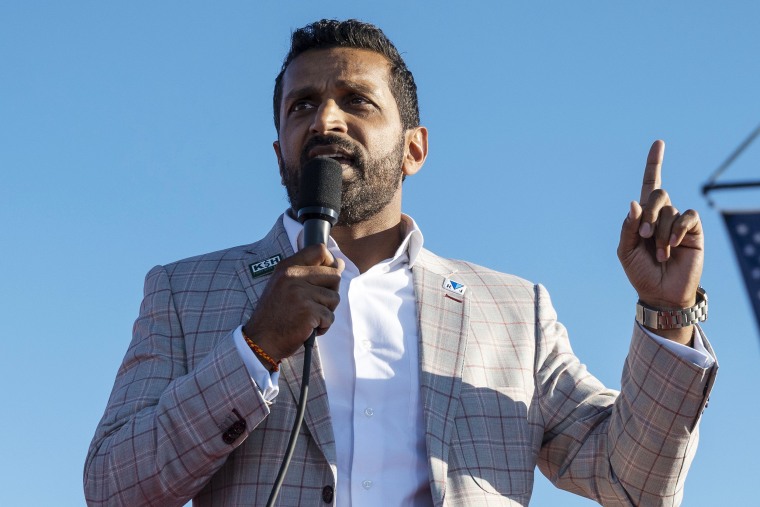
Kash Patel, who worked at the Justice and Defense departments during the Trump administration and who at one point was considered for the post of deputy director of the CIA, said in December that a second Trump administration would “go out and find the conspirators not just in government, but in the media” over the 2020 election. Trump lost the election to Biden, but Patel and Trump insist without evidence that the election was “stolen.”
Trump’s campaign has distanced itself from Patel’s remarks.
Fears among allies
Foreign allies, anxious about keeping their intelligence sources safe, already are worried about the implications of a second Trump term and could discreetly scale back how much information they share with their U.S. counterparts about intelligence-gathering methods, former officials and lawmakers said.
The cooperation and trust between the U.S. and allied intelligence agencies have been forged over decades. Washington relies heavily on its foreign intelligence partners to help track terrorist threats, navigate international crises and prepare for possible conflicts. But Trump’s return to the White House could jeopardize those relationships, former officials said.
“I think some of our allies may withhold intelligence information on subjects such as Russia,” said a former career CIA officer who oversaw clandestine operations in Europe. “And they would do it very carefully. They would ratchet it back so it doesn’t look so obvious, for fear of retribution.”
Trump has been accused of having a cavalier attitude to sensitive or secret information, and is facing federal charges that he mishandled classified documents he kept after leaving the White House and then allegedly obstructed the government’s attempt to reclaim them. Prosecutors say Trump took more than 300 classified files to his Mar-a-Lago estate in Florida. The former president has vehemently denied any wrongdoing and called the case an attempt to undermine his re-election bid.
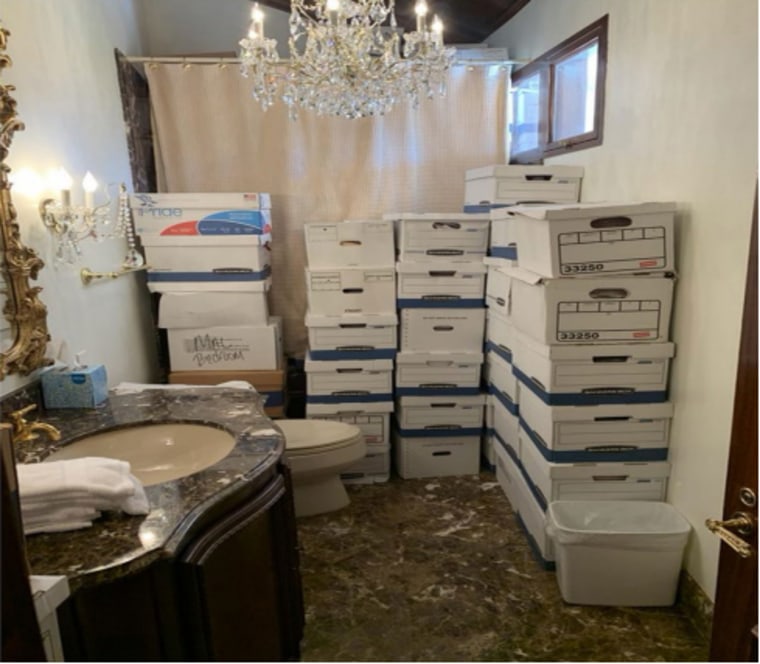
The allegations about Trump’s mishandling of classified information, and his consistent praise and refusal to condemn Russian President Vladimir Putin, would cause U.S. partners to think twice about relaying intelligence related to Russia, former officials said.
Protecting sources is a bedrock principle for all intelligence work, and no government would be ready to jeopardize that, the former CIA officer said.
“The one thing any intelligence community cares about most is source protection,“ the former officer said. “No ally is ever going to come out and say we’re going to turn off intel sharing, but a friendly service would be remiss if such source protection concerns are not of paramount concern, given Trump’s affinity for Putin.”
James Clapper, the former director of national intelligence and former director of the Defense Intelligence Agency, said U.S. allies will be “apprehensive about sharing intelligence revelatory of their sources and methods, particularly if you have somebody that’s obviously pretty careless about protecting security information.”
No more ‘adults’
When Trump entered office in 2017, he arrived without having served in the military or any branch of government.
“As a result, he had no experience handling classified information or working with military, diplomatic, or intelligence programs and operations. Trump had traveled abroad but, by his own account, did not often read,” reads a history of presidential briefings published by the CIA’s Center for the Study of Intelligence.
Having publicly disparaged the intelligence agencies even before he was sworn in, Trump’s relations with the spy services have always been difficult. At times, intelligence officials who delivered analyses that did not fit the White House’s agenda were berated by angry aides, according to two former intelligence officers.
But during Trump’s time at the White House, senior figures in his Cabinet, military and in the intelligence community — dubbed the “adults in the room” — managed to steer him away from what they believed were ill-informed or risky ideas, sometimes by persuading him otherwise or delaying decisions.
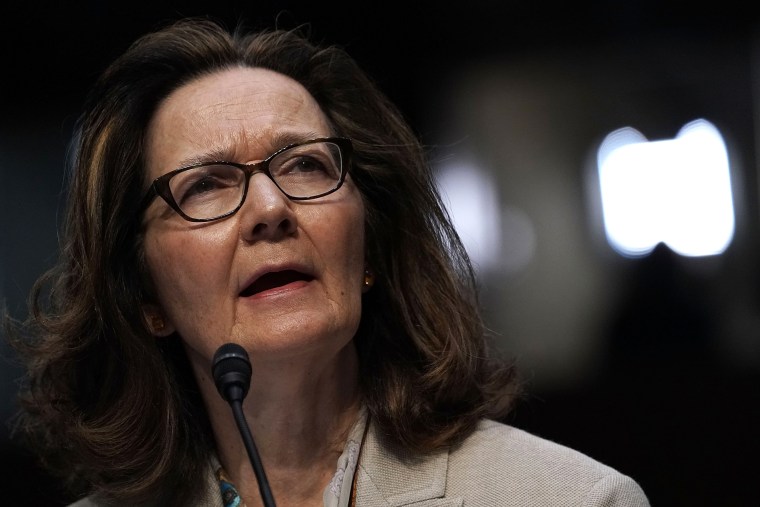
One of them was Gina Haspel, a career intelligence officer who served as CIA director in the tumultuous second half of Trump’s presidential term, from 2018-2021. She helped insulate the spy agency’s workforce from political pressure, according to former intelligence officials.
“She knew how to manage Trump, how to flatter him and how to call in her chips when the moment called for it,” said one former colleague.
Clapper called Haspel “one of the most impactful directors in the history of the agency simply because of how she protected it.”
But a career intelligence officer will likely not get the nod for the director’s job at the CIA in a second Trump presidential term, as Trump has signaled he wants deputies who have demonstrated strong political allegiance to him.
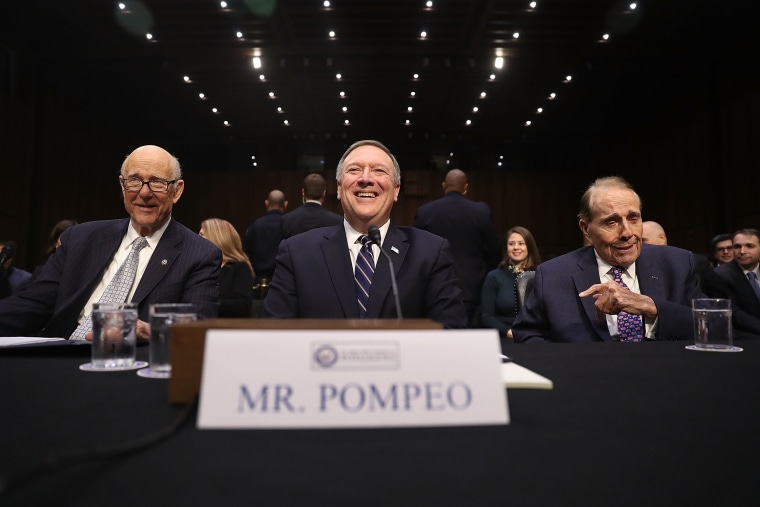
Trump’s supporters at the Heritage Foundation think tank and elsewhere are advocating that he shake up the federal bureaucracy by replacing tens of thousands of civil servants with political appointees in government agencies, which would include the 18 federal intelligence agencies. In the closing months of the Trump administration, the White House attempted such an effort with a new executive order but the Biden administration quickly reversed it.
“I think there will be more political appointees, but I don’t know how many more,” said one former official who served in the Trump administration and who is in close contact with Trump’s team.
The former official said it would be reasonable for Trump to assert control over the intelligence community in a second term through political appointees, to ensure the intelligence agencies carry out the president’s policies without bureaucratic subterfuge.
“No matter what side you’re on politically, you should want political control because we don’t want this country to become a security state,” the former official said.
The Heritage Foundation’s proposed outline for action if Trump is elected, titled “Project 2025,” calls for the president-elect to promptly choose a deputy director of the CIA, who would not need Senate confirmation, and could “immediately begin to implement the President’s agenda.”
“Additional appointees should be placed within the agency as needed to assist the Director in supervising its functioning,” the report states.
The document also calls for breaking “the cabal of bureaucrats in D.C.” by moving some directorates in the CIA outside of northern Virginia, where the headquarters is located.
Robert Litt, who served as general counsel for the Office of the Director of National Intelligence from 2009 to 2017, said inserting political appointees into the management of the spy agencies in unprecedented numbers could distort the way intelligence is analyzed and lead to illegal or ill-advised decisions.
“I think it would be a very, very bad thing for the intelligence community and for the nation if the intelligence community was dominated by a group of political loyalists,” Litt said.
“One is the risk that intelligence analysis will not be called down the middle,” Litt said. “And the other is the risk that the intelligence agencies will be directed to do things that are either unlawful or inappropriate.”
Worst-case scenarios
In a second Trump White House, China would remain the top priority for the intelligence agencies, as it was for the last Trump administration and the current Biden administration, said the former official close to Trump’s team. A mission center at the CIA dedicated to Iran likely would be restored, and a Trump White House would look to cut back on in-house analytical teams within ODNI, the former official said.
The Heritage document, echoing an argument often employed by Trump and his supporters, asserts that former intelligence officials have injected politics into the work of the spy agencies in an attempt to promote the idea that Trump’s campaign in 2016 allegedly colluded with Russia and to play down allegations of possible corruption against Biden’s son Hunter Biden.
The Heritage policy blueprint calls for security clearances to be revoked for any former intelligence officials who “discuss their work in the press or on social media without prior clearance” from the director of national intelligence. It also calls for an “audit” of all cases of “past politicization and abuses of intelligence information.”
Former intelligence officials are divided over whether a worst-case scenario — with the spy services targeting domestic political opponents — could take place, and if it did, how the intelligence workforce and courts would respond. Much will depend on whom Trump names as the leaders of the intelligence agencies and the Justice Department. Former Republican Rep. Devin Nunes, a staunch supporter of Trump who was an outspoken critic of the investigation into possible ties between the Trump campaign and Russia, is seen as a possible candidate for CIA director. John Ratcliffe, the former Texas congressman who served as director of national intelligence under Trump, could be asked to return to the DNI’s job.
One former senior intelligence official said for all its shortcomings, the intelligence community would not be easily converted into a domestic spying service, and that many of the career officers would refuse to follow unlawful orders.
“They would be pretty resistant to turning it on the American people,” the ex-official said.
A more likely scenario could be a steady degradation of the intelligence agencies, in which experienced staff resign or are sacked and morale declines, with unpredictable consequences for intelligence gathering and the country’s national security, the former official said.
Other former officials say Trump has never respected the norms and guardrails meant to safeguard America’s democracy, and that there is no guarantee he won’t venture into Nixonian territory.
“I would not say anything is off the table when it comes to Donald Trump, including the most potentially damaging and egregious violations of practice, if not law itself,” said John Brennan, who served as CIA director under President Barack Obama and is an outspoken critic of Trump.
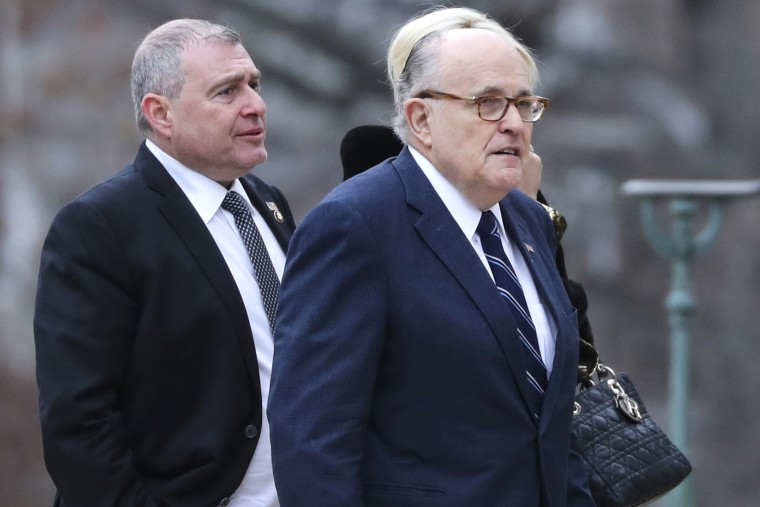
Former officials point out that Trump sent his personal lawyer, Rudy Giuliani, to Ukraine in a bid to dig up dirt on Biden, his political opponent. Next time, the former officials said, perhaps a similar mission would be handed to the CIA, though presented under the guise of legitimate intelligence gathering.
Miles Taylor, who worked as a senior official at the Department of Homeland Security during the Trump administration, said the secrecy that underpins intelligence work could also enable an administration to hide the true purpose of a particular order and make it extremely difficult for an employee to blow the whistle if they deem it inappropriate.
“A number of people at senior levels are very concerned that they will get asked to do things they consider unethical but not illegal,” Taylor said.
But unlike other parts of the government, there would be “few remedies to sound the alarm” because so much relevant information is classified, said Taylor, who has warned publicly of the risks of a second Trump presidency.
Contemplating a possible second Trump term, many intelligence officers are looking at securing assignments abroad or leaving for the private sector, Taylor said.
“A lot of them are thinking if Trump wins, it’s a really good time to move on,” he said.







